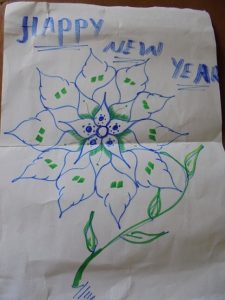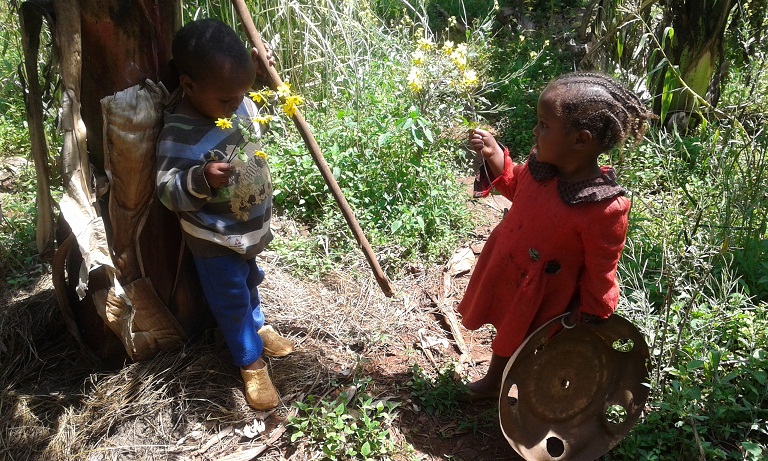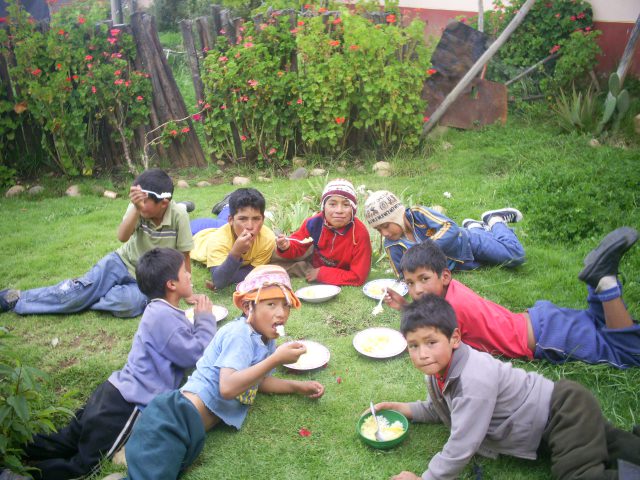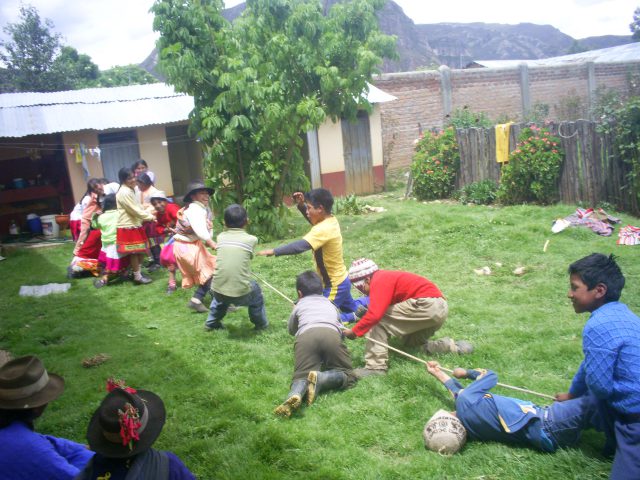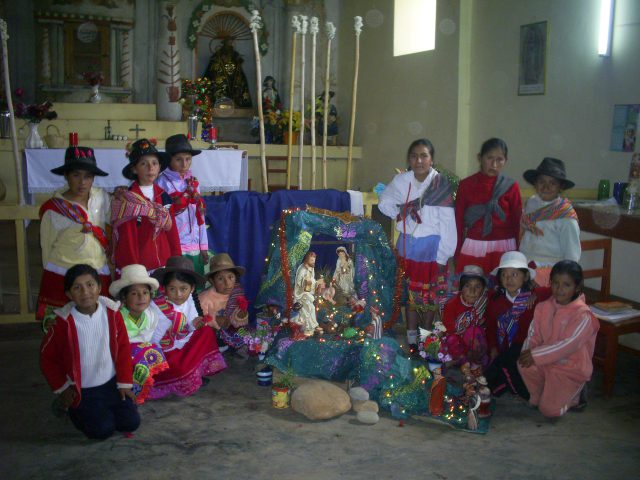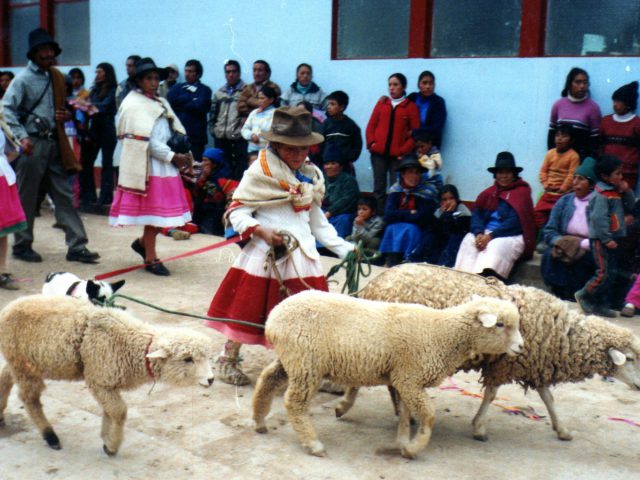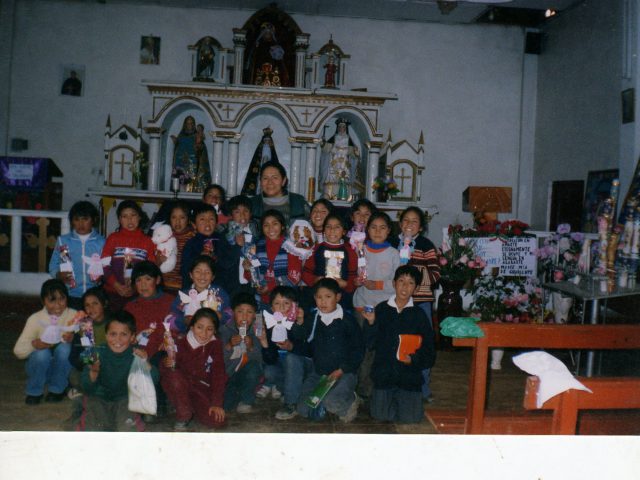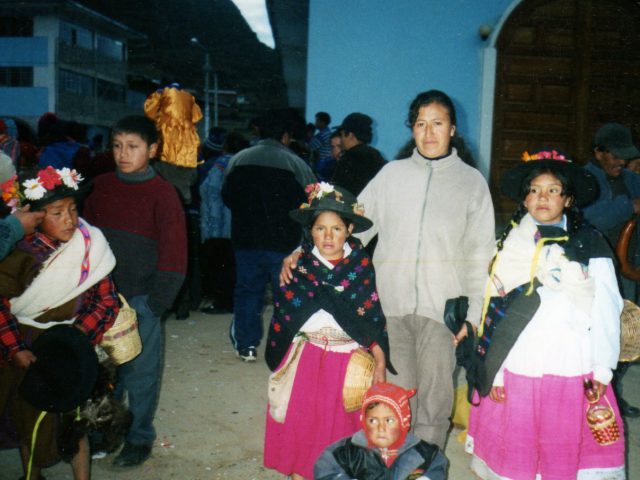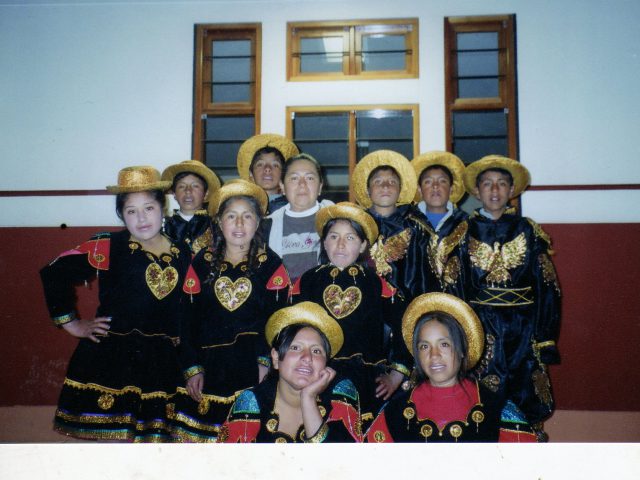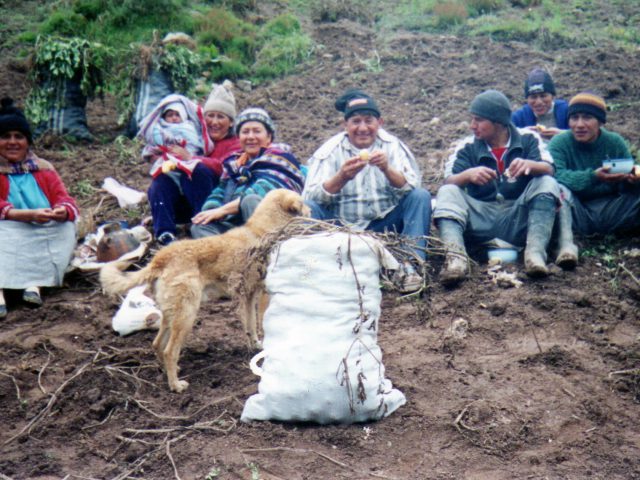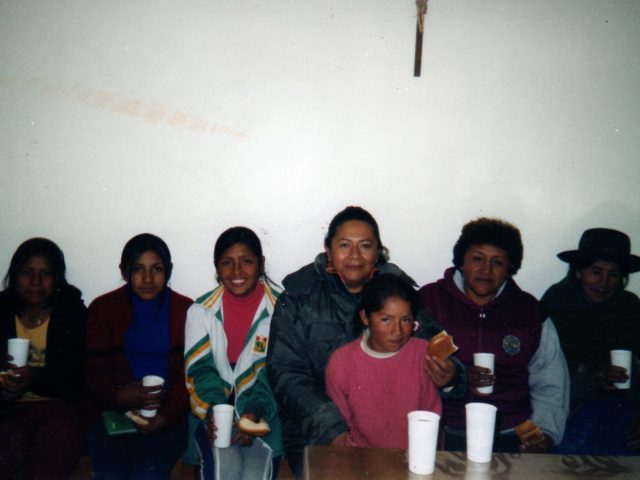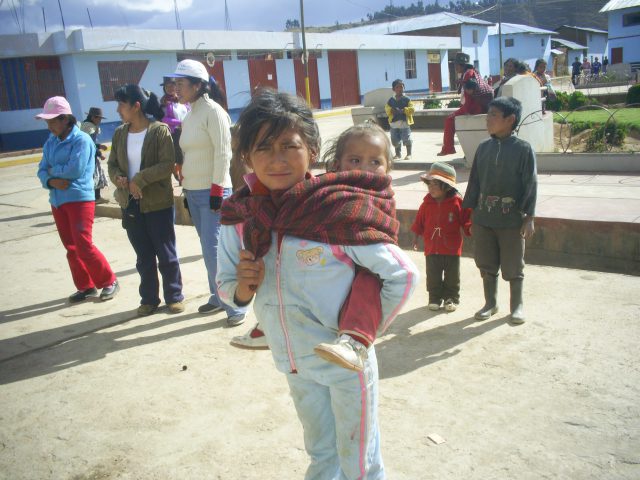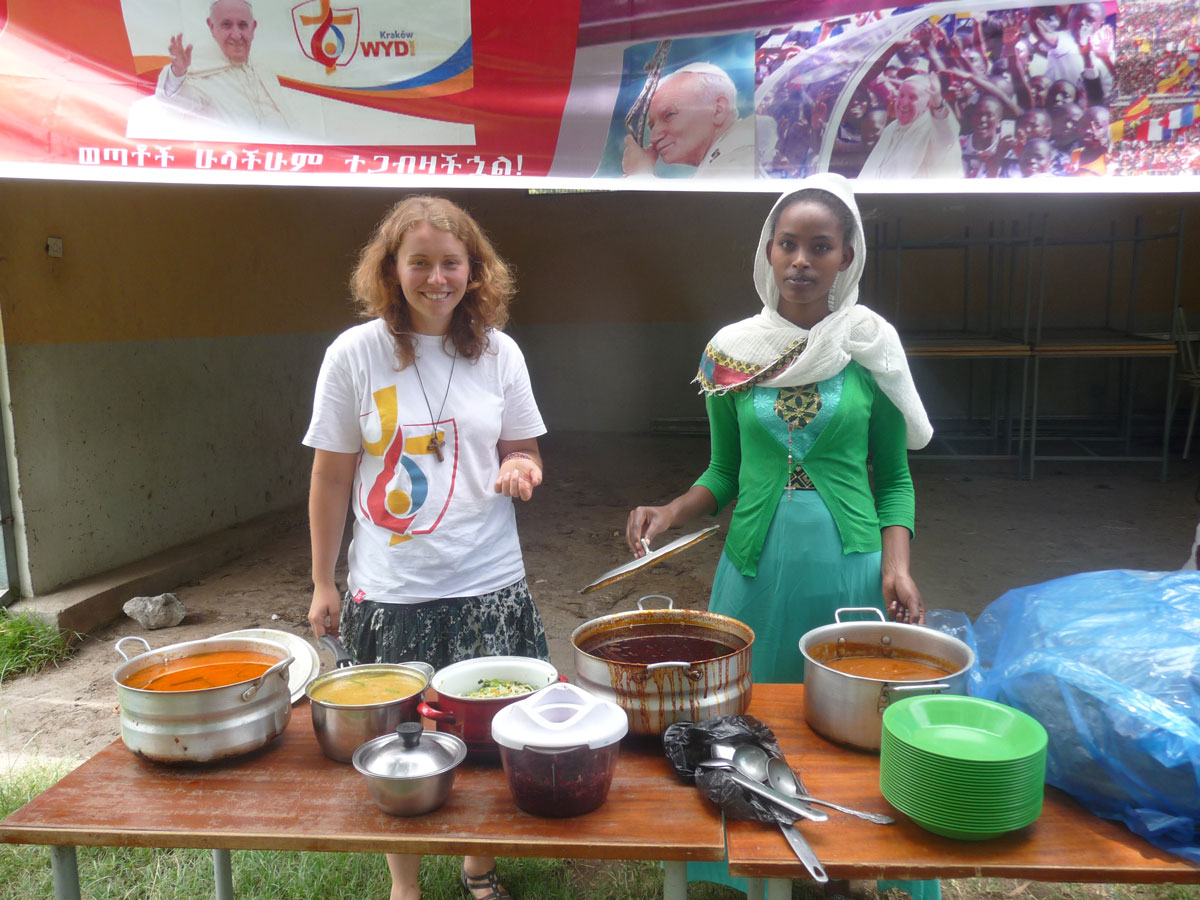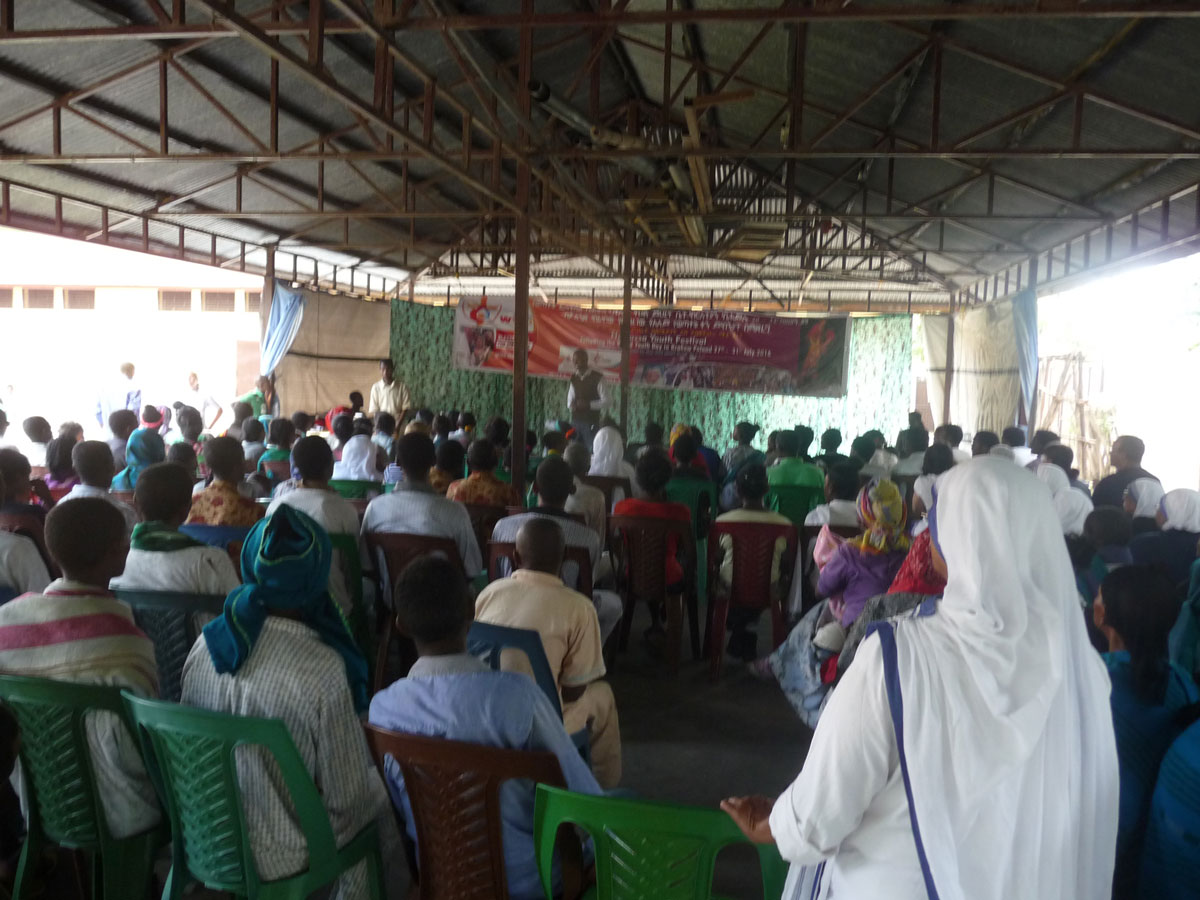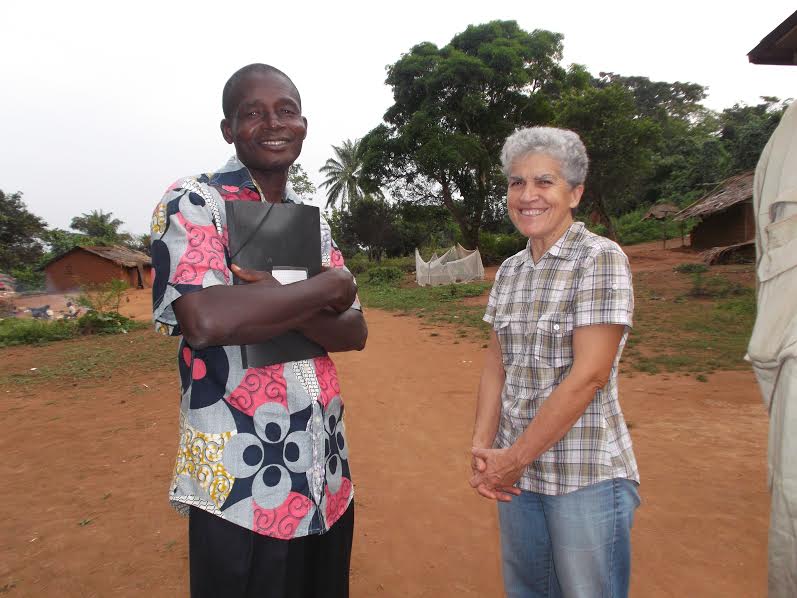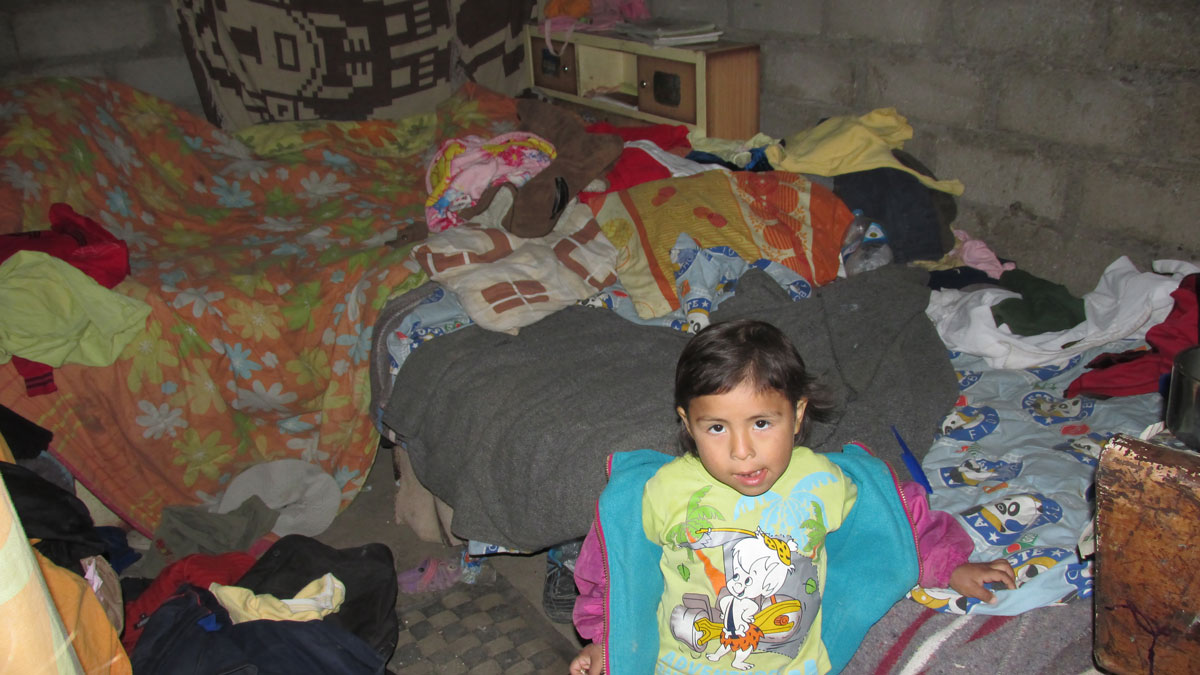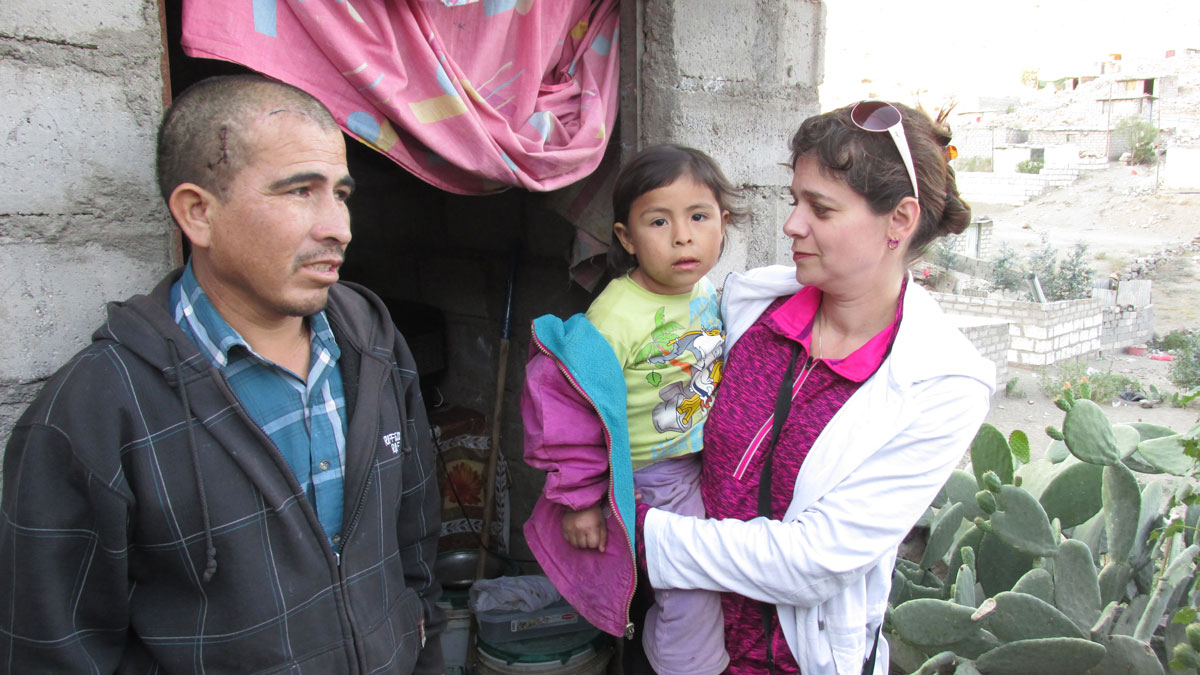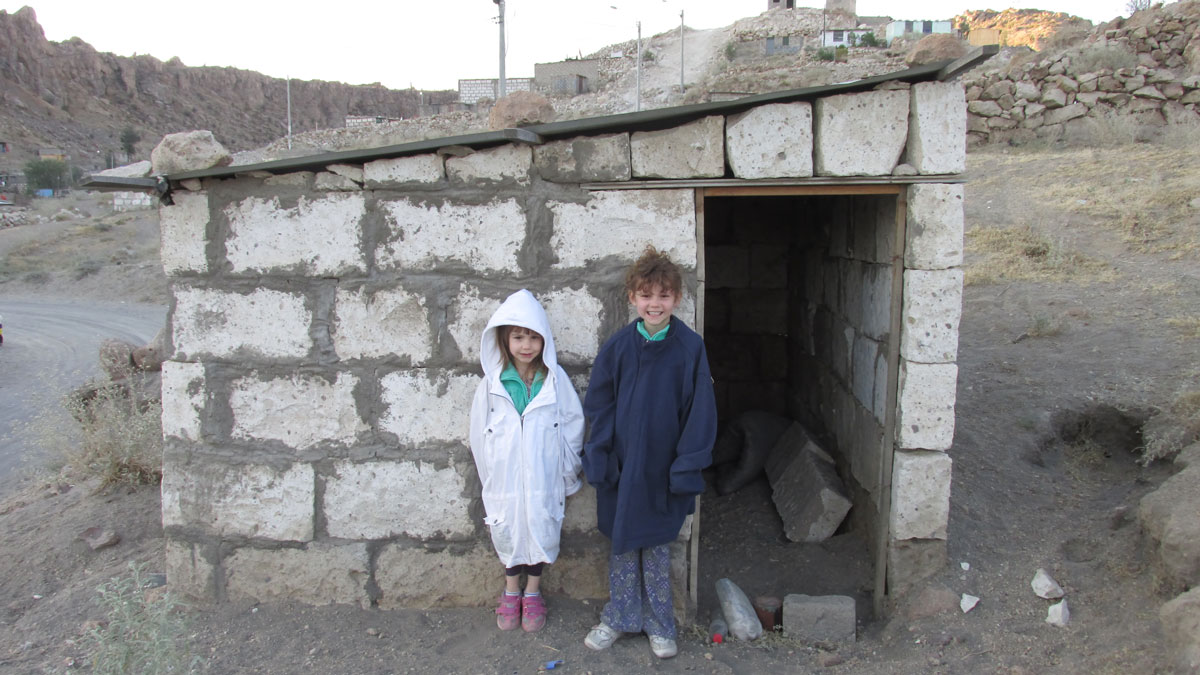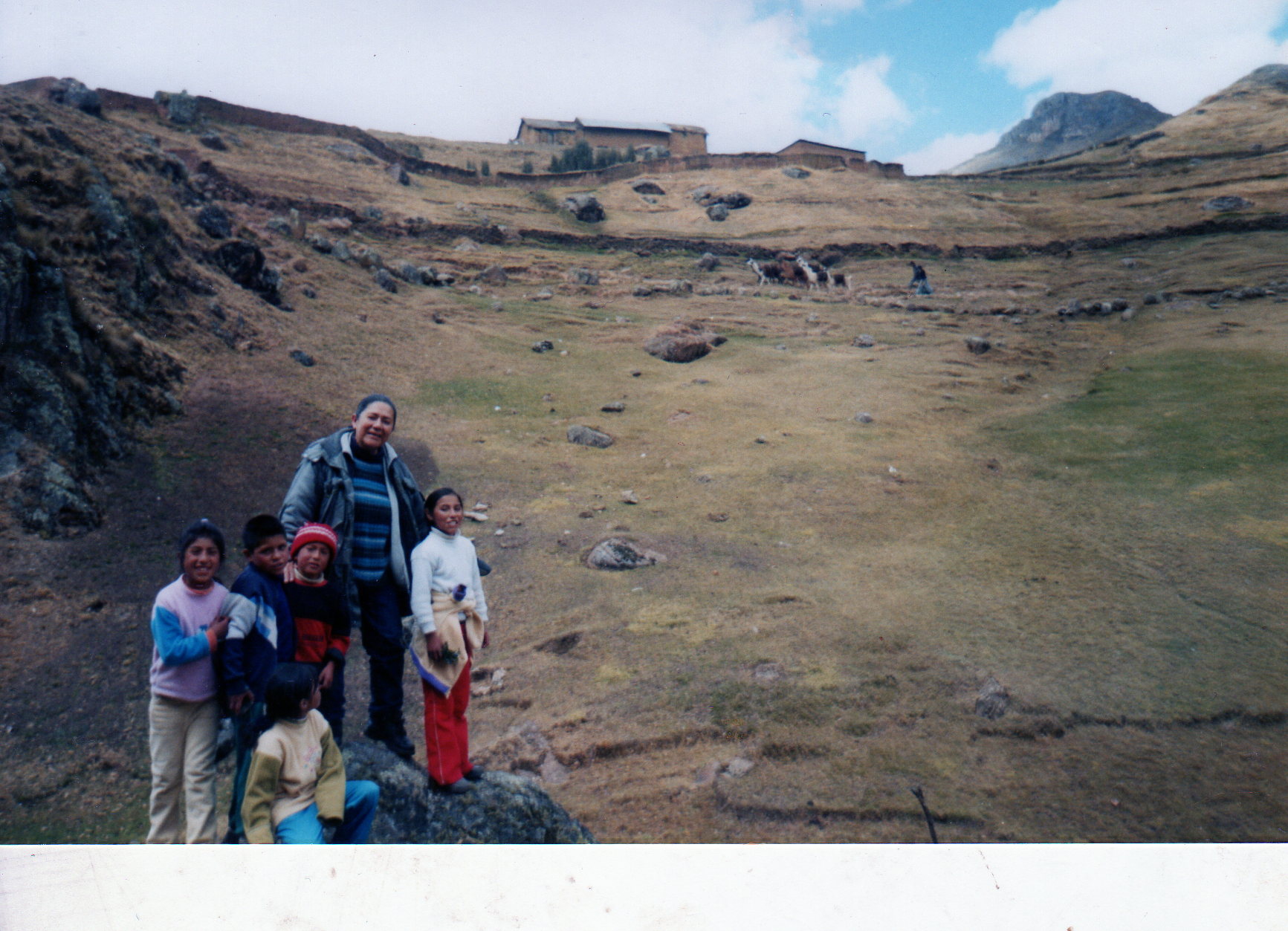
Hello everybody. I want to tell you about my personal experience with children in the mountains of the Andean highlands, during my missionary service of 6 years. Most of those children are shepherds, responsible for various tasks. The girls are also in charge of caring for the little ones and even tied them on their backs with a blanket when they go out to play. They are ingenious; with just some small stones and a marble they make a game called Matatena.
Children take the sheep to graze near the river, before going to school (which is often far from their village). They also help in the family´s fields and school´s one, to sow, clean the groove and harvesting. The main food are potatoes and various types of root vegetables like carrots, goose, root vegetables, sweet potato, yacon and maca, because of the high altitude of the mountains it just germinate the plant underground.
The lives of the children is not easy, because most do not live within an integrated family. Some parents go to the jungle to work (where coca is grown) and they do not know of them in 10 and / or 15 years, because they bind with another woman with whom they have more children and only return when the kids are big enough to take them to help in the work. This cause serious injuries and resentments within the youth. Because of the need, the mom goes to the city to work as a house cleaner and leaves the children with the granny and they (the mothers), in the city, also establish a relationship with another man. Most grannies speak Quechua and their activity is to care for animals, sow to eat, and it is not a priority for them to send the children to school because it is better for them to be helped in the field. I met a teacher, who once started the school calendar, spends fifteen days visiting the students house to house to convince the grannies that allow the children to go to school.
I share with you that my father pass away when I was in mission and I was warned the third day that this happened and they had already buried. I was working with the children and all I thought of was to thank the Lord for giving me such a good father, loving, attentive and respectful with all his children (we were 10). And that I had his blessing and moral support in this work; (because of the children with whom I was at that time they most hardly enjoyed a father).
There are desperate and sad moments as when Susy, a girl who for helping her mom to cook burned herself with boiling water behind the knee and the medical post diminished the number of cures, because only with her they were going to finish gauzes they had in existence and had not the unguent needed. This allows me to reflect and apply a training course and preparation in first aid. Knowing their crops and/or plants that occur is that population and see if some of them were medicinal.
In the mission, I got to know a little girl who was infested with fungi in the chest and died from unsanitary conditions in her home. She slept on the floor on sheepskins, her very dark house was located where the small canals down with all the dirty water from the village and therefore was very wet, all this favored worsened her health. And later on she died. Modesty from her part, lack of confidence and ignorance was the reason for her illness was not treated in time.
On another occasion, I had the need to call attention to children that were playing soccer with an orange, because the soil were infected with pork´s feces and as ends the recess, they took the orange, peeled with their dirty hands and they eat among those who participated in the game. But, don´t they know of balls?!
Boys or girls, when they accompany their mommies to the river to wash clothes is when they have the opportunity to take a bath.
They are welcoming children, as when we arrived they run to prepare a hot drink to offer with a little cake. And when you help them, as a gesture of friendship, they invite you with their roasted beans kept in their pants pocket, this in thanks.
Also, a day we were walking through the square, a tiny 5 years old shouted us from the other end of the square: missionary, God bless you! Imagine how nice feeling conveyed to us as missionaries, once we began the day’s work

As they do not have toys, television or cellular, they live with their friends and brothers, look after each other. They like to participate in the village feast where people attend from the hamlets and villages around the town. There is a dance held in many towns called Auquidanza where they make a representation of the death of the Inca by the conquistador Pizarro and women singing pray for the life of the Inca. It is a nice experience.
In several villages, on December 25, children go to worship the baby Jesus dancing and singing.
I admire the strength of their convictions, because when they invited Luis, a boy who attended church, to participate in a joke of lies, he refused saying he could not lie, as he would receive our Lord Jesus Christ in his first communion.
One day knocks at our door a boy of 5 years, bringing his friend of seven years who were crying inconsolably as he hung the bus that were coming and fell, striking his forehead from which emerged a great bump. To be attended, we gave the instruction to go with his mother to take him to be attended to the medical post. The child cried harder, afraid of the posible punishment of his mom. There is much intra-family violence in the environment, upon entering in each room there is a belt or a stick over the teacher’s desk to establish discipline.
My dear missionary companion Josefina, applied a slice of onion on the front head but the child was crying inconsolably, we offered him a cup of chocolate and taking the drink the onion felt into the cup which provoked the laughter of those present and also the injured child, this made him forget about the incident. Everyone were impressed by the solidarity of the little boy who brought his friend to be healed.
It is very nice to work with children, because they assimilate very quickly the new things and what they learn they want to implement at home. Try to give happiness to the little ones, it is not difficult because they are not demanding and are very grateful.
And what can I tell you about my “legs” (young people), who suffer so much trying to find work in the city, sleeping in parks, without eating and only acquiring diseases.
Once, some engineers came to the village, they want to open a gap in the mountains. They attracted the young people, inviting them to eat at the bar and offering them work and good food during the work period. They were excited and accepted. Walked away for a large canyon, forced to walk thorough slopes to measure sections, with the danger of falling from the mountain. As it was rainy season, their blankets and firewood get wet, so they only ate raw potatoes and noodles soaked. Half evening of the third day they escaped and one of them cried saying: what kind of sin they had committed to deserve such punishment, one of them had a cup of aluminum and filled with spring water for drinking, that helped them to return home.
They are enthusiastic and sensitive guys, but their work is very heavy.
They expect you to communicate them the Good News.
Fondly
Adriana Salcedo Margarita Cabello
Comboni Lay Missionary of Guadalajara, Jalisco, Mexico




